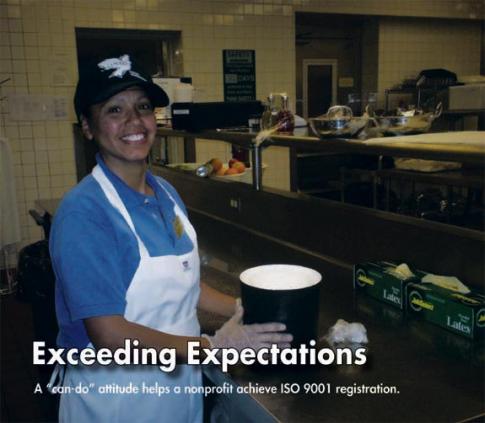
Today’s competitive environment requires many businesses to register their quality management systems (QMS) to ISO 9001. Although debate on the overall effectiveness of registration continues, each year an increasing number of organizations seek it. So what’s significant about acquiring ISO 9001 registration? What makes the following case study about a nonprofit association achieving ISO 9001 registration particularly compelling?
What’s compelling is the “it can be done” spirit and the collective commitment of the management team and each employee to collaborate throughout the registration process. That was the path followed by this nonprofit, the Life Options, Vocational and Resource Center (LOVARC), which demonstrated a positive outlook, a truly compassionate effort, and a deep involvement in each stage of compliance to the standard. In fact, LOVARC embraces this work ethic every day supporting enlisted personnel at Vandenberg Air Force Base, located near Santa Barbara, in Lompoc, California. LOVARC manages a full food-service operation for the 30th Space Wing headquartered at Vandenberg, doing everything from receiving raw goods to preparing food and cleaning up.
…
Comments
Add new comment